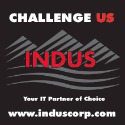
2012 is here, and with it comes big changes for the Federal IT industry. WashingtonExec gave local executives the opportunity to share their thoughts on where they see the government contracting industry headed.
Today’s 2012 federal IT outlook comes from Richard Pineda, Vice President at Dell Federal.
What will next year (2012) hold for Government Contracting?
 Richard Pineda: Federal Government Contracting needs to be innovative in how it uses resources throughout the entire contract lifecycle. As taxpayers, Citizens will continue to demand quicker/better services from their government even amidst spending cuts. Creative solutions involving private-sector know-how need to be adopted. For IT, the government spent $78.9 billion in 2011, with spending expected to be flat. That “flat” spending should not necessarily equate to less. Less can be more as systems can be implemented to reduce cost through smart data storage with fewer data centers. A viable solution includes “co-sourcing”—a collaborative effort where government contracts technology partners who partner with government workers to implement more efficient and effective practices, infusing government entities with private sector knowledge and best practices. Increased collaboration, especially in healthcare, defense, and cloud services will help to streamline its processes and better serve its citizens. For healthcare, solutions already exist to make information more readily accessible through electronic medical records (EMR). Costs will decrease as government reduces paperwork and adopt storage and server technologies and automation. Technologies to address data deluge will find useful applications in defense as well, as information becomes organized and stored more efficiently.
Richard Pineda: Federal Government Contracting needs to be innovative in how it uses resources throughout the entire contract lifecycle. As taxpayers, Citizens will continue to demand quicker/better services from their government even amidst spending cuts. Creative solutions involving private-sector know-how need to be adopted. For IT, the government spent $78.9 billion in 2011, with spending expected to be flat. That “flat” spending should not necessarily equate to less. Less can be more as systems can be implemented to reduce cost through smart data storage with fewer data centers. A viable solution includes “co-sourcing”—a collaborative effort where government contracts technology partners who partner with government workers to implement more efficient and effective practices, infusing government entities with private sector knowledge and best practices. Increased collaboration, especially in healthcare, defense, and cloud services will help to streamline its processes and better serve its citizens. For healthcare, solutions already exist to make information more readily accessible through electronic medical records (EMR). Costs will decrease as government reduces paperwork and adopt storage and server technologies and automation. Technologies to address data deluge will find useful applications in defense as well, as information becomes organized and stored more efficiently.
More M&A Activity?
Richard Pineda: Within the government contracting community – there will be an increase of M&A’s, with Dell among the organizations looking to evolve through organic and inorganic means. M&A’s can be advantageous to both the acquirer and the acquired firms. Acquirers benefit from knowledge and enhance the capability and quality of product offerings. Acquired firms benefit as well, receiving an infusion of capital without going through the byzantine process of regulations for IPO’s and in many cases helping them to quickly scale as well. M&A activity in the IT sector will be rampant in areas that can play niche to the items above – helping the government execute more mission for less.

